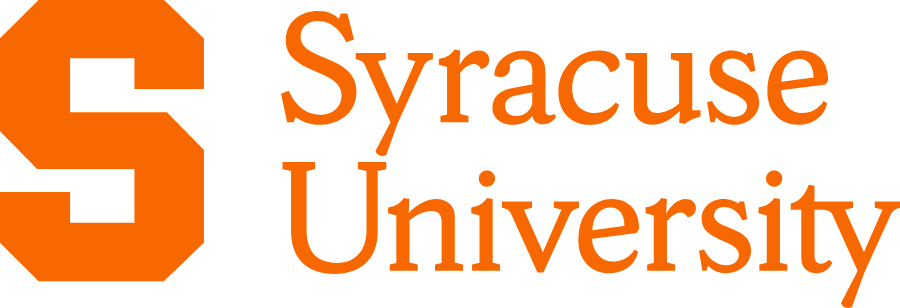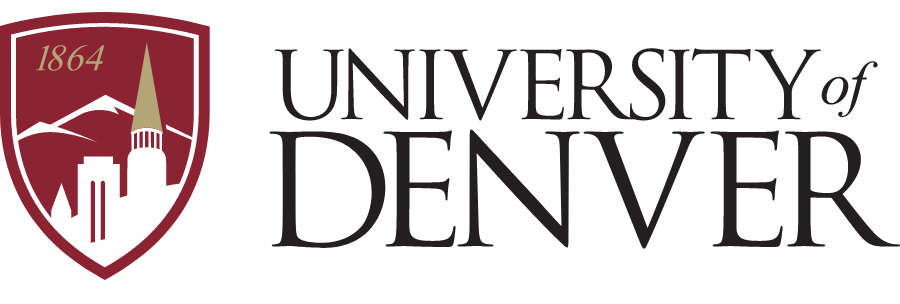Libraries and the librarians staffing them are important parts of every community. Whether a library is located in a community, a school, or a university, it serves as a hub of information, resources, entertainment, connectivity, and more for its users. Many people depend on their libraries for access to the information they want and need, which is why having qualified and skilled librarians is important to keep them running at their very best.
It isn’t unusual for a librarian to wear many different “hats” each day. For example, a librarian may provide book recommendations, run a storytime session, teach a technology class, offer research assistance, answer phone queries, and more. In order to be fully prepared for the demands of librarianship, different states often set their own unique requirements for future librarians to meet before entering the field. This ensures that future librarians receive the full, rigorous training and education they need to best serve their communities. Ohio is no different – this state has its own set of unique requirements future librarians must meet before entering the K-12 school library, public library, or academic library.
ADVERTISEMENT
Syracuse University
Master of Science in Library and Information Science Online
Syracuse University offers an online MS in Library and Information Science. The program can be completed in 18 months and includes the option to specialize in School Media or customize the program to align with your professional goals. No GRE is required.*
University of Denver
Master of Library and Information Science Online
University of Denver’s Morgridge College of Education offers an online, ALA-accredited Master of Library and Information Science program. Learn from practitioners and gain the service-based skills needed to connect communities with information in the digital age. No GRE is required.*
St. John’s University
Online Master of Science in Library and Information Science
Gain the advanced expertise that information specialist positions require with the online M.S. in Library and Information Science program from St. John’s University. Achieve your career goal by selecting from one of the following specializations:
Arizona State University
M.Ed in Learning Design and Technologies
Create literacy programs and curricula that fully incorporate digital technology and include themes of social justice.
Requirements to Become a Public Service Librarian in Ohio
According to the State Library of Ohio’s 2023 Statistical Report, there were over 7,400,00 registered library users across the different library systems statewide. The report also indicates that the various public libraries serving this large number of users offer a variety of resources and services, such as bookmobile visits, makerspaces, storytimes, programming for all ages, wifi hotspot checkouts, and more. In order to provide this wide array of services to the public, Ohio librarians need to be well-prepared to offer knowledgeable and reliable informational services to the many different communities they serve.
The state of Ohio requires its professional librarians to…
- Hold a bachelor’s degree in any chosen field prior to entering a Master of Library and Information Science (MLIS) program. While some people interested in pursuing a library career may choose to earn their bachelor’s degree in library studies, it isn’t a requirement to enter an MLIS program. In fact, public librarians often come from a colorful and varied background of educational experiences because they have different undergraduate degrees – this tends to enhance their knowledge and specialties when working in public libraries.
- Obtain an MLIS degree. Like in many other states, some libraries prefer their librarians to hold a degree that is American Library Association (ALA)-accredited. Other libraries do not mind if their librarians have a non-ALA-accredited degree, as long as they hold a completed MLIS. As future librarians begin to apply for MLIS programs, they should consult job postings and requirements for various Ohio institutions to gauge the preferences in the areas they aspire to work.
- Obtain the Ohio Library Council (OLC)’s Ohio Public Library Certification. Unlike other state libraries’ certification programs, this one requires an applicant to have at least two years’ worth of professional librarian experience under their belts before submitting the application for approval. The basic requirements to receive this certification are…
- The completion of an MLIS degree
- The completion of two years of public library professional work experience
- Payment of the initial $25 fee for OLC members (or $50 for non-members)
- Once a librarian earns the Ohio Public Library Certification, they must complete routine professional development and earn continuing education credits to maintain it. The Ohio Library Council requires its certification holders to earn 75 continuing education contact hours, which must be earned during the five-year period immediately preceding renewal of the certificate. Recertification costs $25 for OLC members (or $35 for non-members).
Requirements to Become a K-12 School Librarian in Ohio
The Ohio Educational Library Media Association (OLEMA) sets forth the standards required of the state’s K-12 school librarians. According to their website, “OELMA is an organization dedicated to professional development, student literacy and achievement, and technological excellence in Ohio’s schools.” In order to maintain this high level of excellence among K-12 school librarians in Ohio, potential school librarians must meet a specific set of requirements before entering the profession:
- Graduate with a bachelor’s degree in any subject area. While many future K-12 school librarians pursue an education degree (and often teaching certification along with it) during their undergraduate years, a future K-12 librarian doesn’t have to necessarily follow this path to enter school librarianship later – there are just a few extra steps to complete in order to do so.
- What if the future K-12 school librarian isn’t a certified teacher yet? Don’t panic! There are avenues available to become a certified teacher, even if the future librarian didn’t study education previously. Many MLIS programs geared toward K-12 school librarianship offer alternative routes to completing teacher certification requirements, allowing their MLIS graduates to also earn these certifications while working on their MLIS.
- Earn an MLIS degree focused in K-12 school librarianship. Again, like public service librarians, K-12 school librarians should pay close attention to different school districts’ requirements for degrees earned through ALA-accredited MLIS programs. While it isn’t always a firm requirement, it is often listed as a preferred quality of applicants.
- Upon completion of an MLIS, take the required certification testing and earn passing scores to complete certified teaching and media specialist requirements. Often, professors in MLIS programs will assist their students in finding the right tests and registering for them before graduation from the program. The Ohio Department of Education and Workforce requires future Ohio K-12 school librarians to take the following tests and earn passing scores: Assessment of Professional Knowledge: Multi-Age (PK-12) OAE, and the OAE School Library Media Specialist Content Assessment.
ADVERTISEMENT
Syracuse University
Master of Science in Library and Information Science Online
Syracuse University offers an online MS in Library and Information Science. The program can be completed in 18 months and includes the option to specialize in School Media or customize the program to align with your professional goals. No GRE is required.*
University of Denver
Master of Library and Information Science Online
University of Denver’s Morgridge College of Education offers an online, ALA-accredited Master of Library and Information Science program. Learn from practitioners and gain the service-based skills needed to connect communities with information in the digital age. No GRE is required.*
St. John’s University
Online Master of Science in Library and Information Science
Gain the advanced expertise that information specialist positions require with the online M.S. in Library and Information Science program from St. John’s University. Achieve your career goal by selecting from one of the following specializations:
Arizona State University
M.Ed in Learning Design and Technologies
Create literacy programs and curricula that fully incorporate digital technology and include themes of social justice.
Requirements to Become an Academic Librarian in Ohio
Academic librarians have important roles in the college and university populations they serve – whether they are working for an entire college or university or specialized within a specific section of a campus’ library, they are viewed as instruction and research professionals who are available to help both students and faculty in their academic ventures. Not only are academic librarians responsible for supporting research query needs, but they often lead library tours and instructional sessions for students learning how to research independently. For most college students, a knowledgeable academic librarian plays a huge role in their academic careers during college.
In order to become an academic librarian in Ohio, the requirements are fairly straightforward and similar to those found in other states across America.
- Earn a bachelor’s degree in any chosen subject field. Undergraduate credits and degrees in library science isn’t typically a requirement.
- Earn an MLIS degree. Again, pay close attention to different college and university hiring standards – some academic libraries may not care if an applicant’s degree isn’t ALA-accredited, and others may list this as a firm requirement. It often varies from institution to institution, like it does in public and K-12 school libraries.
- In some instances, a college or university may require (or prefer) candidates to have additional educational certifications and degrees to serve in academic librarian positions. For example, many larger colleges and universities have multiple libraries within their institutions that are fully focused on a specific discipline or subject area; therefore, they prefer candidates who have additional degrees or knowledge in those specific subject areas. If a prospective academic librarian wanted to work in a university’s special art library, having an additional degree in an art-related field in addition to an MLIS may be a preferred qualification.
For those interested in academic librarianship, the Academic Library Association of Ohio (ALAO) is a treasure trove of information and resources. The ALAO offers its members a variety of perks, such as access to grant applications, scholarship opportunities, annual conferences, webinars, interest groups, opportunities to serve on committees, ways to connect with other academic librarians, and more.
How to Become a Prison Librarian in Ohio
Many people don’t realize that prison facilities often have fully-functioning libraries within their walls. These libraries provide inmates with valuable resources they need for enjoyment and research – for example, prison libraries often serve as connections for inmates to find valuable information they need to research their own cases. They also serve as educational hubs for inmates seeking to earn certifications and degrees during their sentences. Besides educational and research purposes, prison libraries are also hubs for pleasure reading and programming, much like public libraries.
Because prison librarians serve a specific subset of the community, an aspiring librarian in this particular field would need the following to fill this role in Ohio:
- Obtain a bachelor’s degree in any chosen field. Again, this doesn’t need to be a bachelor’s of library science.
- Obtain an MLIS. Check with hiring criteria for different prison libraries before committing to a non-ALA-accredited program.
- Complete the employer’s training upon hire. Prison libraries serve a very specific subset of the community, and depending on the prison, some of the inmates may be particularly challenging to work with.
While prison librarianship can be uniquely challenging compared to other library positions, it also has unique perks. For example, prison librarians often serve as the sole library employee in their facility, meaning they maintain control over collections, activities, educational opportunities, organization, and more.




